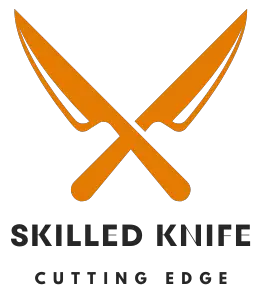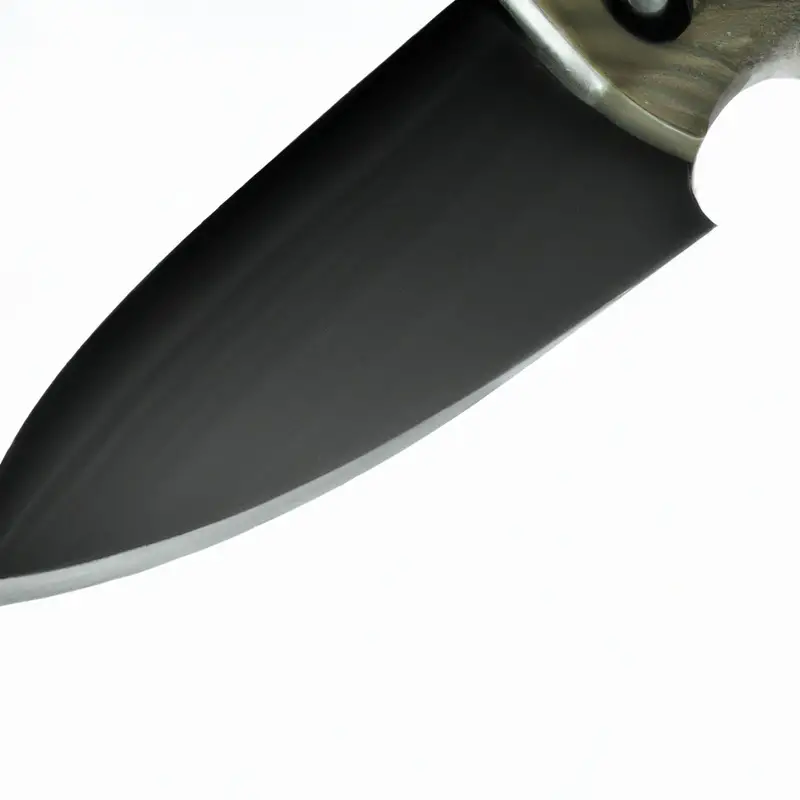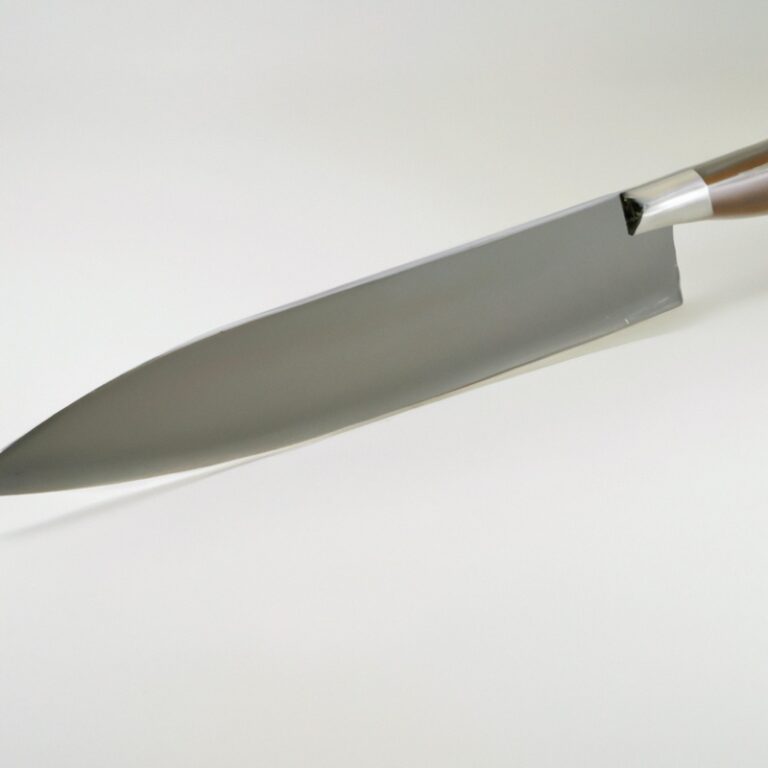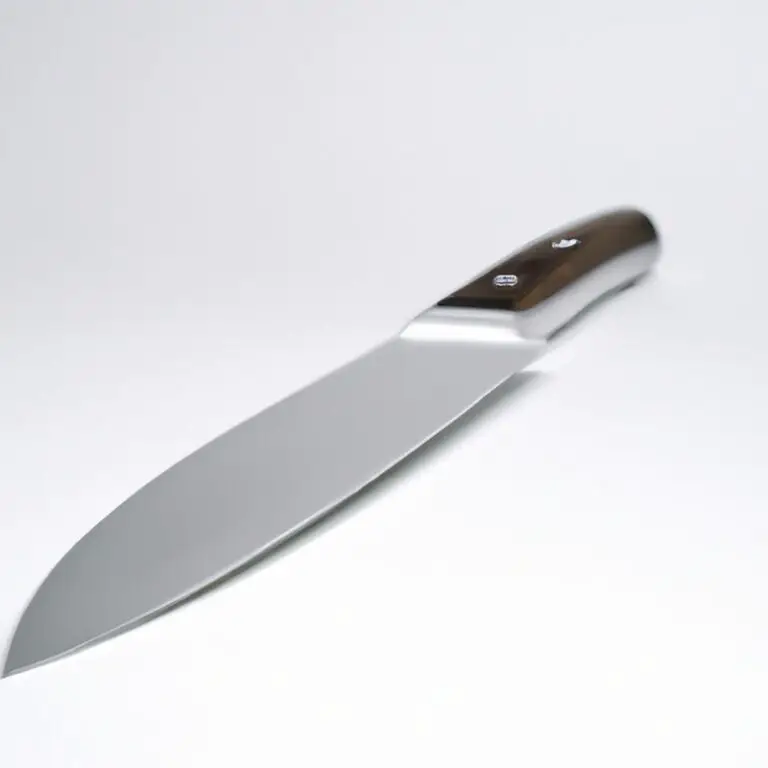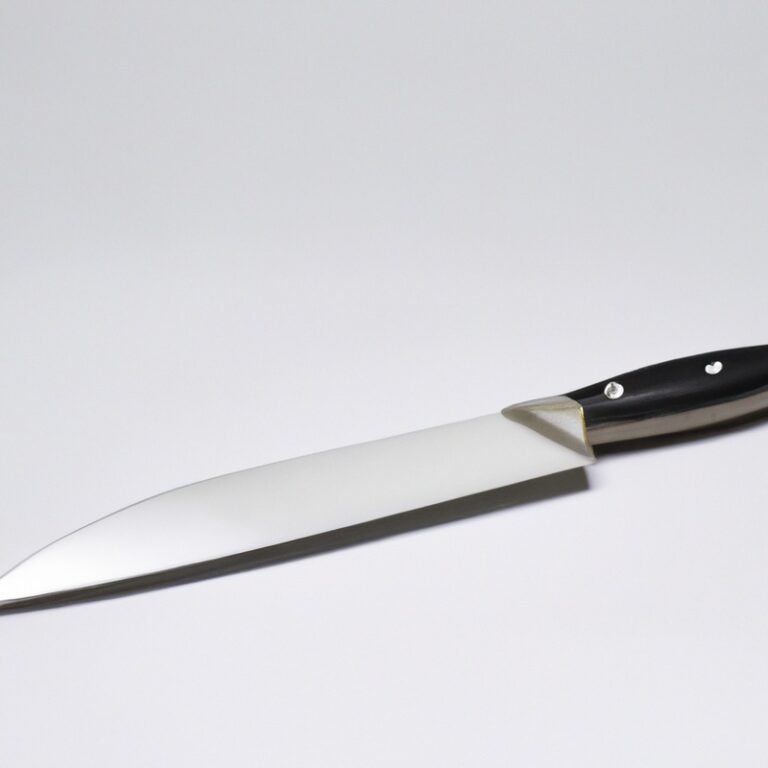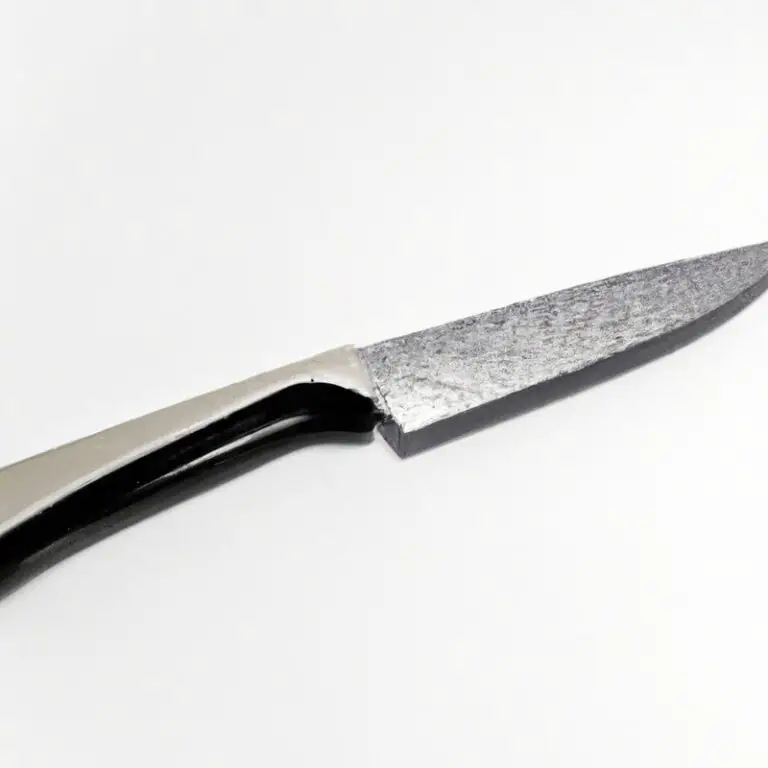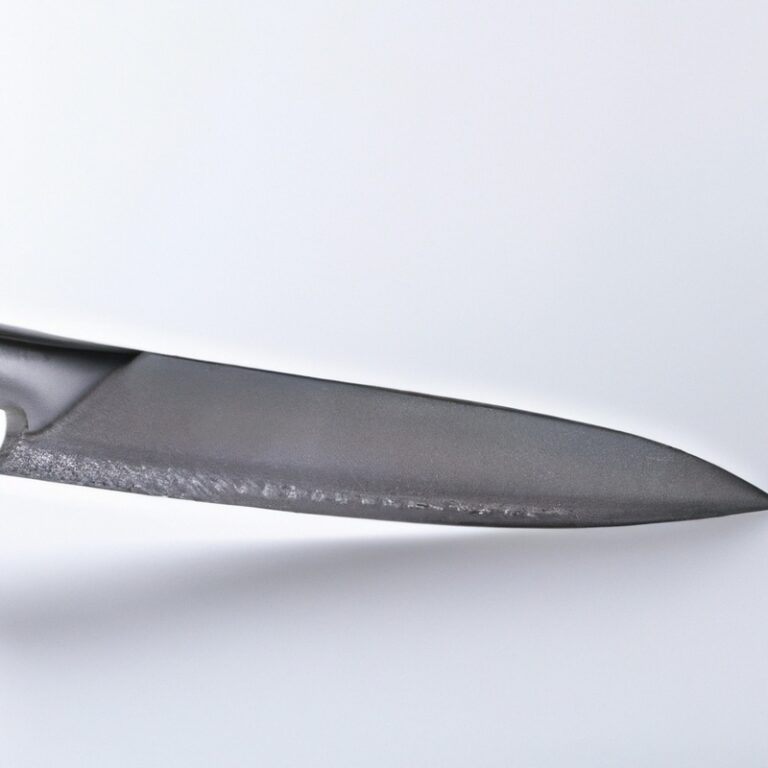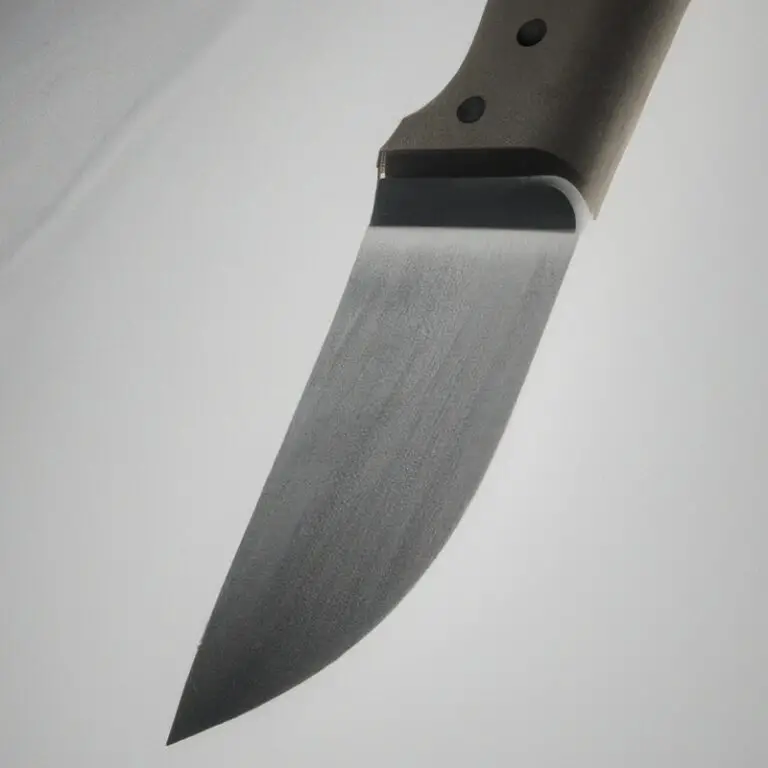What Are The Benefits Of Using a Damascus Steel Blade For Pocket Knives?
Key Takeaways:
- Damascus steel blades offer exceptional durability and strength, making them ideal for pocket knives in terms of longevity and reliability.
- The unique pattern and texture of Damascus steel blades add an aesthetic appeal to pocket knives, making them visually pleasing and a popular choice among knife enthusiasts.
- Damascus steel blades also provide excellent corrosion resistance, ensuring that your pocket knife remains in top condition even when exposed to various elements and moisture.
- The exceptional sharpness and edge retention of Damascus steel blades make them highly effective for cutting tasks, offering superior performance compared to other types of knife blades.
Are you tired of pocket knives that dull easily and chip under pressure? If so, it’s time to discover the world of Damascus steel blades.
These remarkable blades have a rich and fascinating history, originating from the skilled artisans of ancient times.
With their exceptional hardness and resistance to wear and tear, Damascus steel blades promise unparalleled durability and strength. But that’s not all – they also offer superior sharpness for precision cutting and boast unique patterns that make them a work of art.
Join me as we explore the benefits of using Damascus steel blades for pocket knives and delve into the secrets behind their enduring allure.
| Benefits of Damascus Steel Blade for Pocket Knives | |
| 1 | High Hardness |
| 2 | Exceptional Strength |
| 3 | Sharpness and Edge Retention |
| 4 | Durability |
| 5 | Unique Aesthetic Appeal |
| 6 | Corrosion Resistance |
| 7 | Flexibility |
History of Damascus Steel
Origins of Damascus steel
Damascus steel has a fascinating history that dates back centuries.
Its origins can be traced to the Middle East, specifically to the city of Damascus, hence the name.
The exact techniques used to create Damascus steel are shrouded in mystery, but it is believed that it was first developed in the Islamic world during the medieval period.
One of the key characteristics of Damascus steel is its distinctive swirling patterns, created by the process of layering different types of iron and steel together.
This technique, along with the high-quality materials used, resulted in blades that were exceptionally strong, sharp, and durable.
The art of making Damascus steel was eventually lost, and it wasn’t until recent years that modern bladesmiths were able to rediscover and recreate the techniques used in its production.
Today, Damascus steel is highly prized for its historical significance, unique aesthetics, and exceptional cutting performance.
Historical significance of Damascus steel
Damascus steel holds immense historical significance due to its remarkable craftsmanship and superior quality. Dating back to ancient times, Damascus steel blades were highly sought after for their strength, sharpness, and beautiful patterns.
The skillful techniques used to create Damascus steel were closely guarded secrets, passed down from generation to generation.
These blades were not only prized for their practicality but also held a certain mystique and prestige. Today, the historical significance of Damascus steel continues to captivate collectors and enthusiasts alike, preserving a rich tradition of craftsmanship and artistry.
Composition and Construction
Materials used in Damascus steel blades
The materials used in Damascus steel blades are typically a combination of high-carbon steel and low-carbon iron. This combination creates a durable and strong blade that is resistant to wear and tear.
The high-carbon steel contributes to the blade’s hardness, while the low-carbon iron provides flexibility.
The layering and folding process during forging further enhances the strength and sharpness of the blade. The specific types of steel and iron used can vary, but the goal is to achieve a balance between hardness and flexibility for optimal performance.
Process of forging a Damascus steel blade
Forging a Damascus steel blade is a meticulous process that requires skill and attention to detail. It starts with the selection of high-quality steel, such as 1095 and 15N20, which are known for their durability and ability to create contrast in the final pattern.
These steels are heated and stacked together, forming layers that will create the unique pattern in the blade.
The stacked steel is then heated, forged, and folded multiple times to create more layers and ensure a homogeneous composition. This folding process helps to remove impurities and improve the blade’s strength.
After each folding, the blade is hammered and shaped to the desired form.
Next, the blade is heated again and submerged in a special acid solution. This acid etching brings out the contrast in the steel layers, revealing the beautiful pattern.
The blade is then polished to enhance its appearance.
Finally, the blade is hardened and tempered to achieve the desired hardness and toughness. This involves heating the blade to a specific temperature and then cooling it rapidly.
The blade may undergo additional heat treatments to refine its characteristics.
The process of forging a Damascus steel blade requires time, skill, and craftsmanship, resulting in a blade that is not only visually striking but also strong and durable.
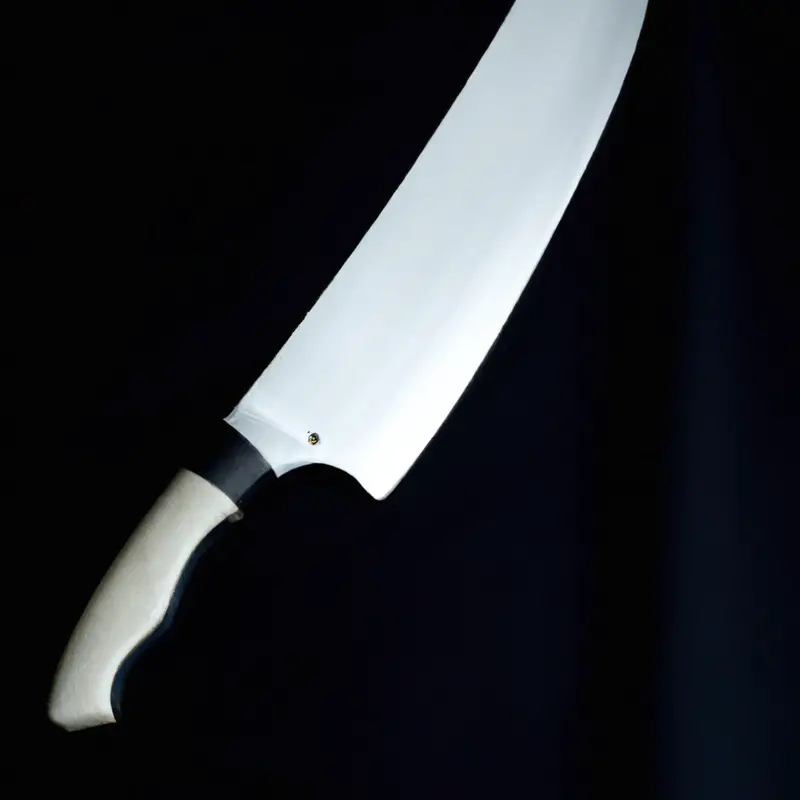
Durability and Strength
Exceptional hardness of Damascus steel
The exceptional hardness of Damascus steel sets it apart from other types of blades. Damascus steel is renowned for its ability to retain its sharp edge and withstand wear and tear over time.
This hardness is a result of the intricate layering and forging process used to create the blade.
The combination of different types of steel, such as high-carbon and low-carbon steels, contributes to its strength and durability. The hardness of Damascus steel allows for efficient cutting and ensures the longevity of the blade, making it a reliable choice for pocket knives.
Resistance to wear and tear
The Damascus steel blade offers exceptional resistance to wear and tear.
Its construction and composition make it highly durable, ensuring that it can withstand the rigors of regular use without losing its sharpness or structural integrity.
Whether you’re using it for everyday tasks or more demanding cutting jobs, a Damascus steel blade will hold up well over time.
This resilience is one of the key benefits of choosing a Damascus steel pocket knife, making it a reliable and long-lasting tool for any cutting needs you may have.
Sharpness and Cutting Performance
Superior sharpness of Damascus steel blades
One of the key benefits of using a Damascus steel blade for pocket knives is its superior sharpness.
Damascus steel blades are known for their exceptional cutting performance.
The layered construction of Damascus steel, created through a meticulous forging process, results in a blade with a razor-sharp edge.
This sharpness allows for clean and precise cuts, making it ideal for various tasks, from slicing fruits to intricate woodworking.
The sharpness of Damascus steel blades enhances their overall functionality and makes them a popular choice among knife enthusiasts and professionals alike.
Precision cutting capabilities
Damascus steel blades offer precision cutting capabilities that make them highly sought after. The unique layered construction of Damascus steel gives the blade exceptional hardness, enabling it to maintain a sharp edge over time.
This sharpness allows for clean and precise cuts, making it ideal for tasks that require accuracy and control.
Whether you’re slicing through paper or delicately preparing food, a Damascus steel blade will provide the precision you need. Its cutting abilities are unparalleled, making it a valuable tool in various industries and everyday use.
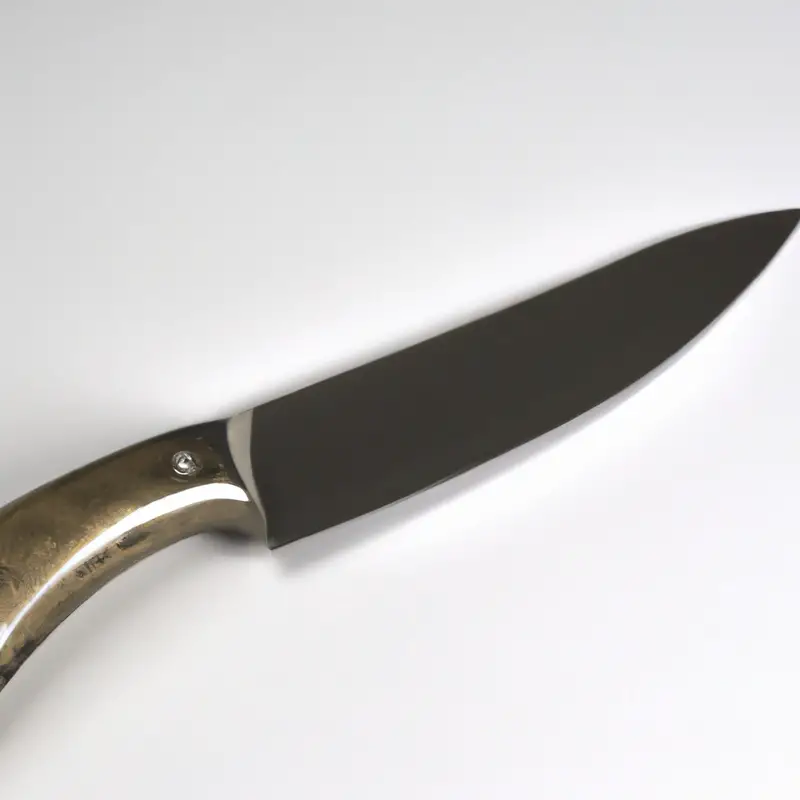
Unique Patterns and Aesthetics
Distinctive patterns created by the layering process
The distinctive patterns found on Damascus steel blades are a result of the layering process during forging. The layers of different types of steel are repeatedly folded and welded together, creating a unique and organic pattern that is visually striking.
These patterns can range from wavy lines to complex swirls and even resemble flowing water or wood grain.
Each Damascus blade has its own individual pattern, making it a true work of art. The beauty of these patterns adds to the overall aesthetic appeal and appreciation of Damascus steel knives.
Appreciation of the aesthetics of Damascus steel
The aesthetics of Damascus steel are truly something to be appreciated. The unique patterns created by the layering process give each blade a one-of-a-kind look.
The swirling waves, intricate lines, and contrasting colors make Damascus steel knives stand out from the crowd.
The craftsmanship required to create these patterns is evident, and it adds to the overall appeal of the knife. Whether displayed as a collector’s item or used in everyday tasks, the beauty of Damascus steel is sure to catch the eye and spark admiration.
Corrosion Resistance
High resistance to corrosion
Damascus steel blades offer high resistance to corrosion, making them ideal for outdoor and humid environments. The unique layering process and composition of Damascus steel contribute to its exceptional resistance to rust and corrosion.
This means that the blade retains its sharpness and durability even when exposed to moisture and harsh conditions.
Whether you’re using your pocket knife for camping, fishing, or everyday tasks, the corrosion resistance of Damascus steel ensures that it will last for a long time without losing its quality.
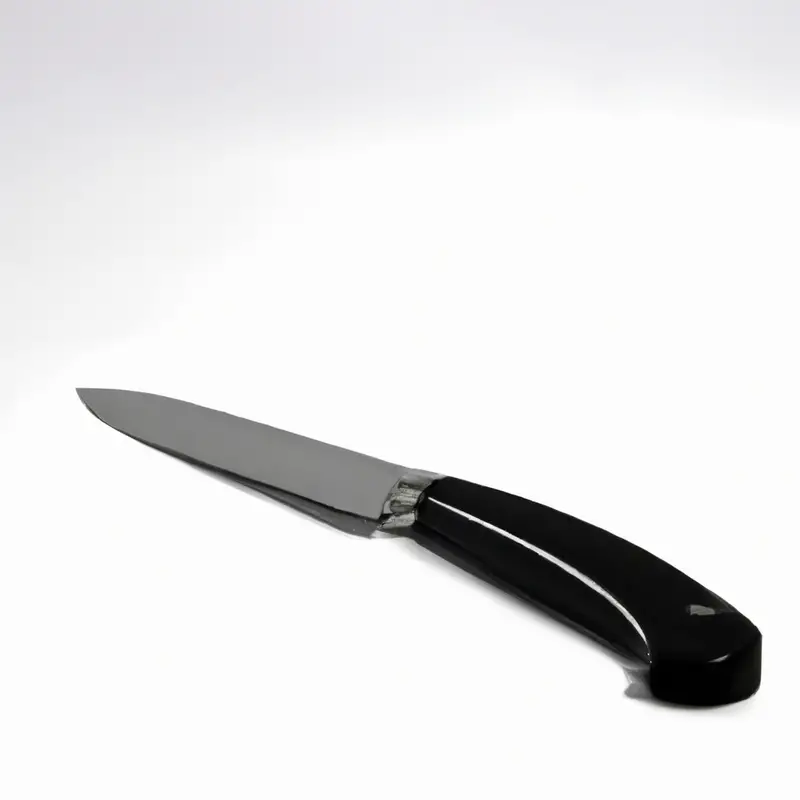
Suitable for outdoor and humid environments
One of the reasons why Damascus steel blades are so popular is their high resistance to corrosion. This makes them particularly suitable for use in outdoor and humid environments.
Whether you’re camping, hiking, or living in a coastal region, a Damascus steel pocket knife will be able to withstand the elements and maintain its sharpness and durability.
This corrosion resistance ensures that your knife will last longer and continue to perform at its best, no matter where your adventures take you.
Versatility and Adaptability
Versatility in various cutting tasks
A Damascus steel blade for pocket knives offers exceptional versatility in various cutting tasks. Whether you need to slice through tough materials, make precise cuts, or perform delicate tasks, a Damascus steel blade can handle it all.
Its exceptional hardness and sharpness allow for effortless cutting, while its durability ensures long-lasting performance.
From everyday tasks to outdoor adventures, a Damascus steel pocket knife is a reliable and versatile tool that will never let you down. Its strength and adaptability make it a must-have for any knife enthusiast or outdoor enthusiast.
Adaptability to different climates and conditions
One of the benefits of using a Damascus steel blade for pocket knives is its adaptability to different climates and conditions. Damascus steel is known for its excellent durability, strength, and resistance to wear and tear, making it suitable for various environments.
Whether you’re hiking in a hot, dry climate or camping in a humid, rainy area, a Damascus steel blade will hold up well and maintain its performance.
Its ability to withstand different temperatures and moisture levels makes it a reliable choice for outdoor enthusiasts in any setting.
Collectibility and Value
Collectible nature of Damascus steel pocket knives
Damascus steel pocket knives are highly sought after by collectors due to their collectible nature. Their historical significance and unique craftsmanship make them valuable and desirable items.
Each Damascus steel blade is handcrafted with layers of different steel, resulting in beautiful patterns and textures.
The intricate design of these knives, along with their exceptional cutting performance and durability, adds to their collectability. Collectors appreciate the craftsmanship and artistry behind these knives, making them highly prized possessions.
Whether you are an avid collector or simply appreciate the beauty and functionality of pocket knives, Damascus steel blades are a valuable addition to any collection.
Perception of value and craftsmanship
Perception of value and craftsmanship is a significant factor when considering a Damascus steel pocket knife. The unique and intricate patterns created by the layering process give each blade a distinct and eye-catching appearance, increasing its perceived value.
Additionally, the meticulous craftsmanship involved in forging a Damascus steel blade showcases the skill and expertise of the maker, further enhancing its desirability.
The combination of exceptional quality and the artisanal nature of Damascus steel makes it a prized choice for those seeking a high-quality and visually appealing pocket knife.
Final Verdict
Damascus steel blades offer a multitude of benefits that make them highly sought after for pocket knives. Their rich history and historical significance add to their allure and value.
The exceptional durability and strength of Damascus steel make it ideal for withstanding wear and tear.
The sharpness and cutting performance are unparalleled, providing precision in any task. Additionally, the unique patterns and aesthetics created by the layering process add a touch of beauty to these blades.
With high resistance to corrosion and versatility in various cutting tasks, Damascus steel pocket knives are both practical and collectible.
The perception of value and craftsmanship associated with Damascus steel further solidify its appeal. Overall, choosing a Damascus steel blade for your pocket knife ensures reliability, performance, and a timeless aesthetic.
As an expert in this field, I highly recommend considering a Damascus steel pocket knife as a valuable and versatile tool.
